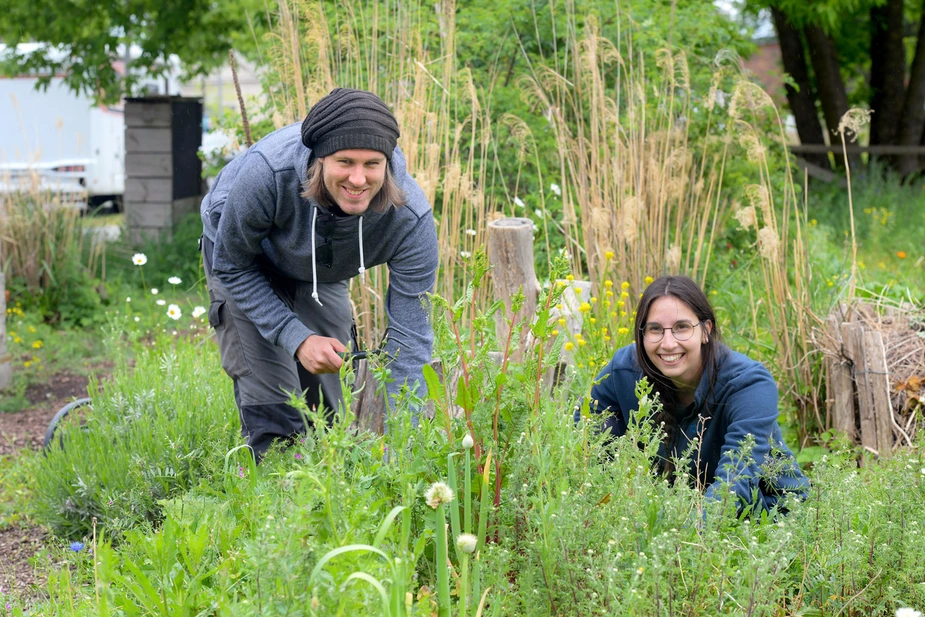Paper cups today, a greener university tomorrow
A student initiative is improving sustainability at Berlin’s Humboldt University
They are committed to a more sustainable university: A student initiative to establish a sustainability office at Humboldt-University brings together young activists from geography, European ethnology, computer science, philosophy, and other departments. In Adlershof, they are gardening for more biodiversity, at other university locations, they are organising events, debates, and educational offerings. The volunteers are united by a desire to shape policy and a readiness to make changes towards a more sustainable and ecological future—at university and beyond.
Pascal Kraft ended up at the office of the sustainability initiative on Friedrichstrasse in late 2018, because he was fed up with the paper cups at the uni café. The 31-year-old geography student has since become a member of the project team after “growing up in the more recent anti-nuclear movement” and fighting coal and genetical engineering at Greenpeace.
“We are a loose association with a core team of about 12 to 15 people, who invest many work hours every week. Our name sums up our mission: We want to establish sustainability in all areas of the university and also actively influence German higher-education policy.
The creation of the Sustainability Office began with founding member Georg Liebig in 2014, who published a draft paper two years later, advocating to launch a so-called Studium Oecologicum at Humboldt University. “It is now being offered as part of the interdisciplinary elective offerings since 2019,” says Pascal Kraft gladly. “It consists of a lecture series called ‘The Green Thread’ and an additional advanced seminar.” The students have created a podcast called “NachHall” for their project, enabling a non-university audience to take part in the lecture series. “We are getting a lot of positive feedback for the content depth. A lot of it is about how we understand democracy, ideas of transformation, and new perspectives. And, of course, about motivating people to get actively involved.”
The students successfully implemented another of their key claims: establishing climate management at HU. “The big CO2 drivers of a university are energy consumption and air travel. One sixth of the HU’s entire electricity consumption is due to the servers of Grimm-Zentrum, HU’s central library,” says Kraft. “Particularly at the Department of Geography in Adlershof, we are working on this issue and are asking ourselves whether it’s really necessary to go on field trips to South America. To many, they are a highlight of their time at university, but they stand against every we learn here.”
Kraft and his fellow campaigners are also coordinating the HU’s contribution to this year’s “Public Climate School”. “We organised a clean-up on the Mitte campus, produced a daily podcast on a current transformation issue, and protested in front of Brandenburg Gate. I gave speech there, in which I talked about Berlin’s higher education law, which is currently under revision. We believe that here needs to be a binding sustainability clause, binding educational offerings for sustainable development.”
“The next step is going to be to define a concept of carbon neutrality for HU,” says Pascal Kraft. “Moreover, we need to have a conversation: with so many students pushing to learn more about sustainability, we should be creating advanced training opportunities for lecturers, develop alternative exam formats.” The student is convinced that his activism is worthwhile: “To us, it is clear beyond doubt that we need a transformation to stay within the limits of what the planet can endure. We at the Sustainability Office have made that change and are motivating others to do the same.”
By Nora Lessing for Adlershof Journal
